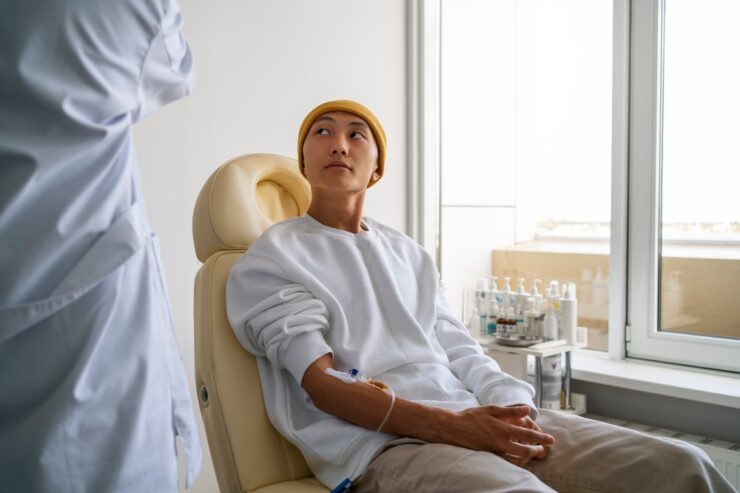Cancer misdiagnosis or malpractice is a profoundly serious issue in the medical field. When healthcare professionals fail to diagnose, treat, or manage cancer correctly, the consequences can be life-altering. This article aims to guide patients and their families in identifying potential cancer malpractice and the appropriate steps to respond effectively.
Understanding Cancer Malpractice
Cancer malpractice occurs when a healthcare provider deviates from the standard of care in diagnosing or treating cancer, leading to harm. This can manifest in several ways, including misdiagnosis, delayed diagnosis, incorrect treatment, or failure to provide necessary treatment. For instance, misinterpreting cancer symptoms as those of a less severe condition can delay crucial treatment.
Identifying Signs of Malpractice
According to the medical community and a Miami cancer malpractice lawyer, the key indicators of potential malpractice include unexpected worsening of the condition, ineffective treatment despite adherence to medical advice, and diagnosis inconsistencies. If a second opinion from another healthcare provider significantly differs from the original diagnosis or treatment plan, it may also signal malpractice.
Documenting Your Medical Journey
If you suspect malpractice, seek a second opinion from another qualified healthcare professional. This can clarify your diagnosis and treatment and either confirm or alleviate concerns about the care you have received.
However, maintaining detailed records of your medical history, treatments, and interactions with healthcare providers is crucial. Document symptoms, dates of medical appointments, prescribed treatments, and any communication with healthcare professionals. These records are invaluable in establishing a timeline and pattern that may point to malpractice.
Understanding Medical Standards of Care
Standards of care in cancer treatment involve widely accepted methods and procedures medical professionals use in similar situations. Familiarize yourself with these standards for your specific type of cancer. This knowledge will help you understand whether your treatment aligns with accepted practices.
Consulting with a Malpractice Attorney
When facing the daunting prospect of a cancer malpractice claim, the role of a specialized attorney becomes indispensable. Their expertise guides victims through the legal labyrinth and significantly enhances the chances of a successful outcome.
Evaluating the Case
The initial step in working with a lawyer involves thoroughly evaluating your case. This assessment is critical in determining whether the healthcare provider’s actions (or inactions) constitute malpractice. Your attorney will review medical records, consult experts, and analyze the treatment timeline to ascertain deviations from standard medical practices. This process is vital in building a foundation for your claim.
Legal Counseling and Strategy
A skilled attorney provides more than just legal representation; they offer strategic advice tailored to your case. They will inform you of your legal rights, the merits of your case, and the potential outcomes. Understanding the complexities of medical malpractice law, they can navigate through legal hurdles that might be impossible for someone without legal expertise.
Gathering and Presenting Evidence
Collecting evidence is a critical component of a malpractice claim. Your lawyer will meticulously gather pertinent documents, including medical records, testimonies, and expert opinions. They work closely with medical experts, often experienced oncologists, who play a pivotal role in providing insights into the standard of care and its breach. These experts can testify how the deviation from standard practices directly impacted your condition, strengthening your case significantly.
Filing Legal Documents
Filing a cancer malpractice claim involves intricate legal paperwork. Your attorney ensures that all necessary documents are accurately prepared and submitted within the stipulated deadlines. This includes the initial complaint, responses to motions, and other legal correspondences crucial to your case.
Representation in Negotiations
Most malpractice cases involve negotiations for a settlement before going to trial. Your attorney’s role in this phase is critical. They will negotiate with the defendant’s legal team or insurance company for a fair settlement. Their negotiation skills are vital in ensuring that compensation aligns with the damages suffered, including additional medical costs, lost income, pain, and suffering.
Advocacy in Court
If a settlement is not reached, the case may proceed to trial. In court, your attorney is your advocate and voice. They present your case, argue on your behalf, and aim to persuade the jury of the validity of your claim. Their expertise in litigation, understanding of medical malpractice law, and ability to present complex medical information understandably are invaluable in this setting.
Support Throughout the Legal Process
Beyond the technical legal assistance, a reasonable attorney provides emotional and moral support throughout the process. They understand the emotional toll that a cancer malpractice case can take on a victim and their family and offer guidance and reassurance during this challenging time.
Don’t Waste Any More Time, and Take Action!
Cancer malpractice is a grave issue that requires prompt and informed action. Patients can effectively address potential negligence by understanding the signs of malpractice, maintaining thorough medical records, and seeking legal counsel. While the journey through a malpractice claim can be challenging, it is a necessary path for seeking justice and compensation for the harm suffered. Empowerment through knowledge and the support of skilled professionals can make a significant difference in navigating this complex process.



